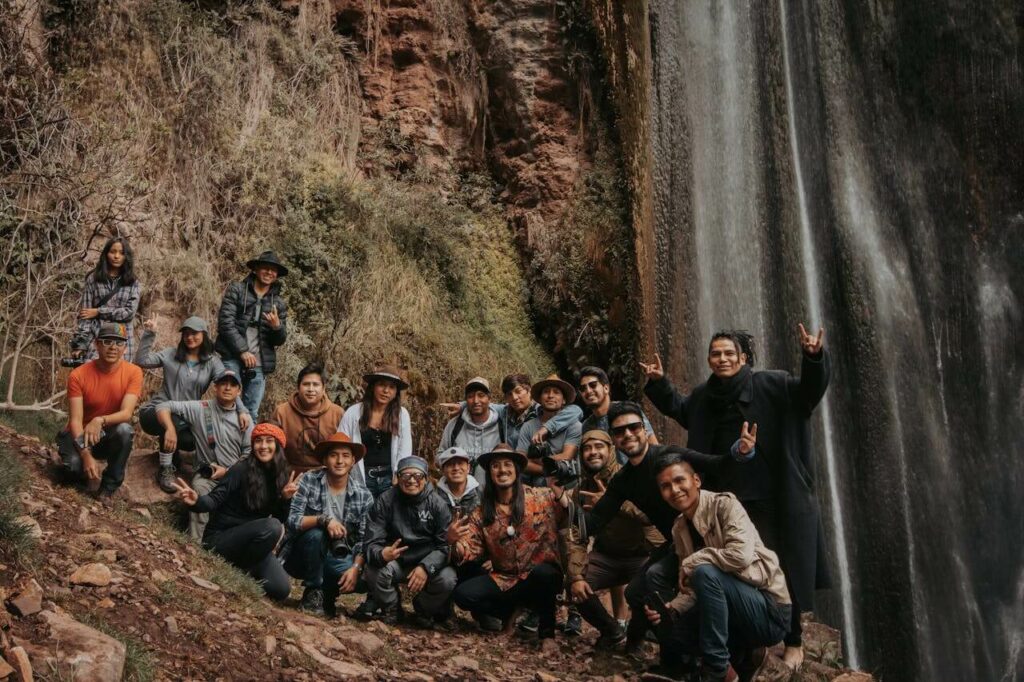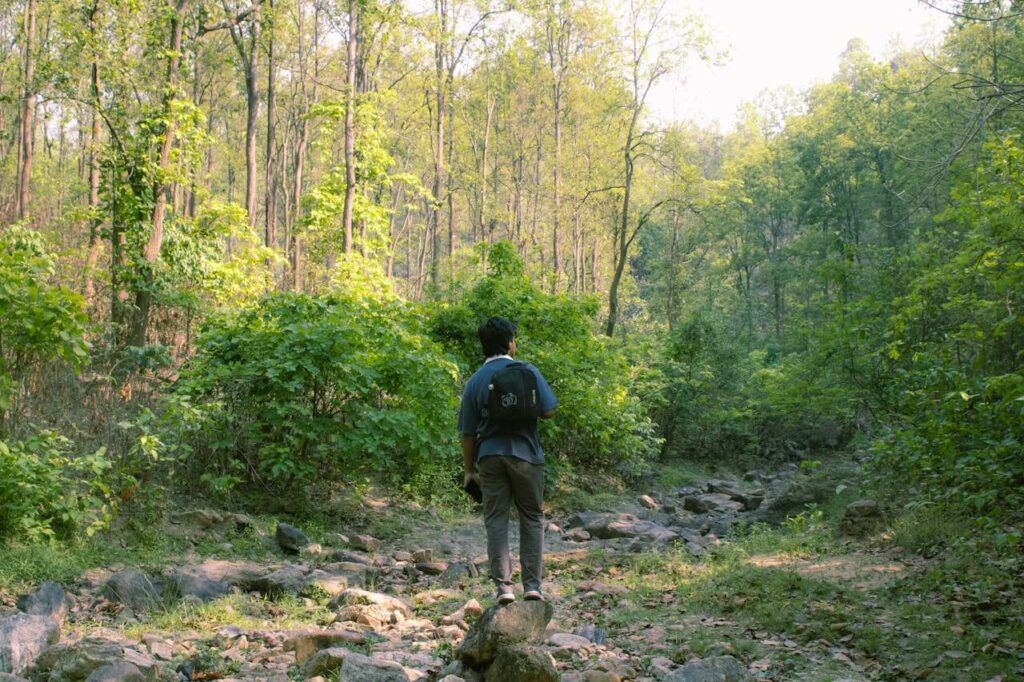
Sustainable Tourism Certification: Which path to choose? 🌍
Wondering which sustainable tourim certification -your roadmap to credible eco-friendly practices- you should go for? 🌎 This guide cuts through the noise to compare and describe the scopes of several sustainable tourism certifications. We’ll find out the importance of GSTC standards, and go through the main certifications such as Green Globe, EarthCheck, Travelife, LEED, Green Tourism etc.. We’ll see how certifications boost accountability without empty promises. Ready to separate real impact from marketing fluff? 🌿
Article Takeaways
📊 Comparative Table for Hotel Certifications
| Certification | Size & Type | Region | Key Benefit | Pricing (approx.) |
|---|---|---|---|---|
| Green Globe | All hotels, resorts (0–250+ rooms) | Global | Comprehensive ESG scope | US $825–5,500/yr + US $2,125–2,975 audit |
| EarthCheck | Hotels/resorts of all sizes | Global | Data-driven ESG benchmarking | US $4,200+/yr; packages US $900–2,500 |
| Green Key | Hotels, hostels, conference venues | Global | Simple operational star ratings | DKK 7,000 base + DKK 45/room; audits ~DKK 5,500 |
| Travelife | Micro → large accommodations | Global | Guided, support-rich CSR focus | €1,175–2,690 per 2-year cycle |
| Biosphere | Hotels, attractions | Global | SDG-aligned, digital improvement | €1,000–2,500 init., €500–1,500/yr; audit €800–2,000 |
| LEED | Hotels, buildings, infrastructure | Global | Green-building certification | US $1,350–1,700 reg. + US $2,150+ submission fees |
| GreenStep | SME hotels (small–medium) | Canada | SME-focused, carbon toolkit | CAD 899–2,499/year |
| Green Tourism | Micro → extra-large accommodations | UK, Ireland | Tiered Bronze → Gold sustainability | £75 reg + £157.50–682.50/yr |
| GSTC‑Recognized | Certifications meeting GSTC standards | Global | Ensures credibility and transparency | N/A (via accredited programs) |
🧭 Recommendations for Hoteliers
Large resorts or eco-friendly flagship hotels: Go for EarthCheck or Green Globe—their depth and ESG credibility make a strong statement.
Mid-range hotels seeking operational sustainability: Green Key offers simplicity and lower cost with official star ratings.
Small to medium operators aiming for stepwise improvement: Consider Travelife, Biosphere, GreenStep, or Green Tourism, each tailored for different regions and support levels.
Hotel buildings undergoing new construction or renovation: LEED brings international recognition in green architecture.
Ensure your chosen certification is GSTC-recognized to guarantee global credibility.
🌍 Other Common Sustainability Labels
| Label | Dedicated to | Geographic scope |
|---|---|---|
| NATA Sustainability Standard | Environmental best practices, emission and waste reduction in aviation FBOs | United States (via NATA members/FBOs) |
| IEnvA (IATA Environmental Assessment) | Environmental management systems for airlines and aviation stakeholders | Global (IATA member airlines/operators) |
| Sustainable Tourism Network | Educational tools & collaboration to promote sustainable tourism practices | Global platform |
| TIES Ecotourism Certificate Program | Ecotourism principles, conservation & community, targeting individuals/SMEs | Global (TIES network in 190+ countries) |
| TourCert | Embedding sustainability into tour operations, management, and staff training | Primarily Europe (Germany-based) |
| TOFTigers | Responsible wildlife tourism in protected areas, graded certification (Bronze/Silver/Gold) | South Asia (India, Nepal, etc.) |
| Nature’s Best (Sweden) | Quality in nature-based ecotourism experiences and cultural sustainability | Sweden |
| Rainforest Alliance Certified | Sustainable agriculture (biodiversity, rights, regenerative practices), also used by tourism | Global (mainly tropical regions) |
| Blue Flag | Clean water, safety, accessibility, environmental education in beaches/marinas | Global (5,000+ sites in 50+ countries) |
🧭 Highlights
Aviation-focused standards:
- NATA Sustainability Standard operates via FAA and NATA members in the U.S. for FBOs and aviation businesses.
- IEnvA, from IATA, supports international airlines in implementing ISO-aligned environmental management systems.
Education & industry collaboration:
- Sustainable Tourism Network offers global resources and community engagement tools.
- TIES focuses on training and equipping professionals and small operators worldwide.
Wildlife and ecotourism:
- TOFTigers is region-specific to South Asia, reinforcing wildlife-friendly tourism practices.
- Nature’s Best is Sweden’s own accredited ecotourism certification for nature-based activities.
Agriculture-linked sustainability:
- Rainforest Alliance spans global agriculture, forestry, and tourism sectors, with its well-known frog seal.
Environmental quality in coastal areas:
- Blue Flag signals compliance with high standards for beaches, marinas, and boat operators across the globe.
Table of contents
- Main Sustainable Tourism Certifications Presentation
- Main Other Common Sustainability Tourism Certifications Presentation
- Understanding Sustainable Tourism Certification: What It Means for Your Business
- Major Certification Programs in Sustainable Tourism
- Benefits of Sustainable Tourism Certification
- Q / A About Sustainable Tourism Certification
Main Sustainable Tourism Certifications Presentation
🌍 Green Globe
A global certification tailored for tourism and hospitality, emphasizing performance across environmental, social, cultural, and economic dimensions.
- Features
- 44 criteria, annual third-party audit
- UNWTO affiliate, recognized in 87+ countries
- Advantages
- Deep, multi-stakeholder scope; strong global credibility
- Audits ensure ongoing improvements
- Pricing
- Membership (annual): US $825 (micro, 0–19 rooms) to US $5,500 (250+ rooms)
- Audit fees: ~US $2,125–2,975 (one-time, initial)
- Applies to
- All accommodation types (hotels, resorts) globally, micro to large-scale
🧪 EarthCheck Certified
A data-driven, science-based program for hotels and tourism with tiered certification (Silver to Master).
- Features
- Quantitative benchmarks on energy, water, waste, emissions
- Annual third-party audit; high-performance tiers available
- Advantages
- Strong ESG integration; real-time analytics; recognized by GSTC
- Tiered pathway encourages continuous improvement
- Pricing
- Hotel program ~US $4,200+/year; travel packages US $900–2,500/year
- Tiered slack for events (EventCheck, carbon tools): AU$2,700/event; AU$350 carbon calculator/event
- Applies to
- Hotels/resorts of all sizes globally, plus events, parks, destinations
🏨 Green Key
A practical eco-label focused on daily operations—energy, waste, food, staff—for hotels and conference facilities.
- Features
- 1–5 star system; GSTC-recognized
- Emphasizes manageable, operational steps. Click here to find out more about Green Key Criteria.
- Advantages
- Cost-effective and straightforward
- Chain-wide and conference scale options
- Pricing
- Annual fee ~DKK 7,000 base + DKK 45/room; audit ~DKK 5,500; one-off registration: DKK 7,500
- Applies to
- Hotels (small to large); conference venues; campsites (Denmark and international affiliates)
🐢 Travelife for Accommodation
A hands-on certification process combining training, self-assessment, and audits for social and environmental performance.
- Features
- CSR, supply chain ethics, staff training
- Guided with support materials
- Advantages
- User-friendly and supportive—ideal for smaller hotels
- Emphasis on social responsibility and ethics
- Pricing
- Two-year cycle: €1,175 (micro) → €2,690 (mega); recertification slightly less
- Applies to
- European-focused accommodations of all sizes
🌾 Biosphere Tourism
Aligns tourism businesses with UN SDGs and uses a digital platform for performance tracking.
- Features
- Multi-stakeholder lens; improvement-focused
- Digital tool for metric monitoring
- Advantages
- SDG-rooted; supported by UNESCO/WTO
- Encourages ongoing digital engagement
- Pricing
- Initial: €1,000–2,500; Annual: €500–1,500; Audit: €800–2,000
- Applies to
- Hotels, tour operators, attractions globally
🏗️ LEED – Green Building Standard
A globally recognized certification for sustainable buildings, applicable to hotels and resorts.
- Features
- Focus on energy, water, materials, indoor environment
- Various certification levels for operations & maintenance
- Advantages
- Strong credibility in green construction/design
- Aids ESG reporting with recognized standard
- Pricing
- Registration: US $1,350–1,700; review fee US $2,150+ (varies by building size); expedited options add up to US $12,000
- Applies to
- Hotel buildings internationally, especially new builds or retrofits
🇨🇦 GreenStep Sustainable Tourism
A Canadian SME-focused certification, GSTC-recognized and carbon-conscious.
- Features
- Carbon footprint tool, SME-tailored metrics
- Ongoing guidance and benchmarking
- Advantages
- Accessible, support-focused, GSTC-verified
- Pricing
- Annual: CAD 899–2,499
- Applies to
- Small to medium-sized Canadian hotels and travel businesses
💼 Green Tourism (UK & Ireland)
A Large-scale eco-certification with Bronze/Silver/Gold tiers based on practices and culture.
- Features
- 15 sustainability goals
- GSTC-recognized with independent assessment.
- Advantages
- Tiered levels offer growth pathway
- Strong brand recognition
- Pricing
- Registration: £75 + £157.50–682.50/year (size-based)
- Applies to
- Hotels, B&Bs, hostels, attractions in UK and Ireland
✅ GSTC-Recognized Certification
Basically, GSTC is a benchmark standard ensuring credibility for certifiers (e.g., Green Tourism, Green Key). GSTC recently launched its own hotel certification.
- Features
- Four domains: Management / Socio‑economic / Cultural / Environmental
- Advantages
- Standardizes trust and transparency
- Recognized by UN agencies
- Pricing
- N/A (GSTC does not charge; fees through certifiers).
- Applies to
- Any certification approved by GSTC; global.

Main Other Common Sustainability Tourism Certifications Presentation
✈️ NATA Sustainability Standard for Aviation Businesses
Developed by the National Air Transportation Association (U.S.), this standard promotes sustainable practices for general and business aviation.
- Addresses fuel, energy, recycling, and operations
- Offers practical guidelines for fixed-base operators and service providers
- Focused on continuous improvement and environmental impact reduction
✈️ IATA Environmental Assessment (IEnvA)
Environmental management system designed for airlines and aviation stakeholders.
- Developed by IATA (International Air Transport Association)
- Covers emissions, resource use, waste, and noise
- Based on ISO 14001
🌐 Sustainable Tourism Network
A platform supporting sustainable tourism education and collaboration across sectors.
- Offers tools, resources, and guidance
- Aims to connect tourism stakeholders
- Encourages certification uptake and best practices sharing
🌿 TIES Ecotourism Certificate Program
Offered by The International Ecotourism Society (TIES), this program provides foundational training and certification in ecotourism principles.
- Ideal for individual professionals and small operators
- Focuses on conservation, community, and education
- Less operational, more educational and strategic
🧳 TourCert
A German-based certification integrating sustainability into tourism business processes.
- Targets tour operators and destinations
- Emphasizes continuous development and staff involvement
- Strong in German-speaking markets
🦜 TOFTigers (India & South Asia)
Supports sustainable wildlife tourism in India and surrounding regions.
- “PUG” certification system with Bronze, Silver, Gold levels
- Works with lodges, camps, and guides
- Promotes low-impact tourism in protected areas
🧭 Nature’s Best (Sweden)
Sweden’s official ecotourism certification for operators.
- Focus on conservation, local involvement, and guest satisfaction
- Rigorous criteria for responsible nature travel
- Ideal for wildlife and soft adventure tourism
🌱 Rainforest Alliance Certified
Applies to tourism businesses, especially in ecologically sensitive areas.
- Emphasizes biodiversity protection, fair treatment, and sustainable practices
- Known for the green frog seal
- Prominent in Latin America and the Caribbean
🐬 Blue Flag
Label for beaches, marinas, and sustainable boating.
- Criteria include water quality, safety, environmental education
- Trusted by travelers as a sign of clean, well-managed environments
🇦🇺 Ecotourism Australia
Specialized for nature-based operators in Australia.
- Levels: ECO Certified, Advanced ECO, and Climate Action
- Recognized by GSTC
- Strong local community and conservation engagement

Understanding Sustainable Tourism Certification: What It Means for Your Business
Sustainable tourism certification is third-party proof that your travel business follows eco-friendly practices. It’s like a trust score for green claims, helping you stand out in a crowded market while actually protecting nature and supporting local communities. Travelers want proof, not promises 🌿.
Certifications verify sustainability through independent audits, ensuring businesses meet strict criteria for eco-friendly operations. They’re transforming tourism by fighting greenwashing and pushing companies to make real changes—from cutting carbon emissions to supporting local economies. This shift responds to 90% of travelers actively seeking responsible options, reshaping how the industry operates globally.
Major Certification Programs in Sustainable Tourism 🌿
GSTC Accredited Certifications: The Gold Standard
The Global Sustainable Tourism Council (GSTC) sets global standards for eco-friendly travel. Its accreditation ensures certification bodies meet strict criteria for evaluating sustainable practices. Think of it as a quality control stamp for green claims. GSTC’s stamp builds trust across the tourism industry. 🌍
Green Globe, EarthCheck, and Biosphere all align with GSTC standards. Green Globe focuses on hotels and destinations worldwide, EarthCheck uses science-based benchmarks, and Biosphere ties sustainability to UN goals. Each offers tailored tools to help businesses prove their eco-credentials while addressing specific environmental and social priorities.
Regional and Specialized Certification Programs
Regional programs like Green Key (Europe/Asia-Pacific), EU Ecolabel (EU), and LEED (North America and Asia) target local challenges. For instance, EMAS-certified accommodations now get better visibility on Booking.com. These programs adapt global frameworks to local ecosystems and cultural contexts.
- Green Key (Europe, expanding to Asia-Pacific and Americas) – Focus on hotel sustainability and environmental management.
- EU Ecolabel (European Union) – Targets eco-friendly tourism businesses across accommodations and services.
- LEED Certification (Global, primarily North America) – Prioritizes sustainable building design in hotels and resorts.
- Rainforest Alliance Sustainable Tourism Certification (Tropical regions like Latin America, Africa) – Protects biodiversity and supports local communities.
- Sustainable Tourism Network (Australia) – Focuses on eco-tourism and Aboriginal cultural preservation.
Regional certifications bridge global standards with local realities. For example, Green Key’s 6,000+ certified businesses in 70 countries address regional environmental goals, while Rainforest Alliance’s 5.7M certified hectares focus on tropical ecosystems. These programs ensure solutions match local cultural, social, and ecological needs.
Specialized Certifications for Different Tourism Sectors
Certifications like Rainforest Alliance and Biosphere target specific sectors. Rainforest Alliance focuses on biodiversity in ecotourism, while Biosphere aligns with UN goals for holistic sustainable development. Requirements vary: hotels might prioritize energy efficiency, tour operators emphasize local hiring, and destinations focus on cultural preservation.
Specialized programs tackle niche challenges. Rainforest Alliance prioritizes forest conservation and community benefits in tropical regions. Biosphere ties sustainability to UN goals, helping businesses track progress. These certifications ensure tourism operations meet precise environmental and social benchmarks, from protecting ecosystems to uplifting local economies and cultures. 🌿
Benefits of Sustainable Tourism Certification 🌎
Sustainable tourism certification boosts reputation, encourages cost cuts through energy efficiency, and attracts eco-conscious travelers. Certified businesses gain competitive edge by meeting 90% demand for responsible travel while reducing waste. Over half of travelers pay more for verified green practices, making certification a smart investment. 🌿
Certified businesses protect ecosystems by reducing energy use and plastic waste. Cultural preservation comes through local partnerships and heritage conservation. Economic growth happens via local jobs and fair wages. With 76% of travelers seeking greener options, certifications like Green Globe ensure real impact beyond marketing claims. This alignment meets evolving consumer expectations while supporting 3% of global GDP from sustainable tourism. 🌍
The Sustainable Tourism Certification Process: From Application to Renewal 🌱
Application and Initial Assessment Steps
Start by choosing a certification body matching your sustainability goals. Complete a self-assessment, submit operational documents, and prepare for a formal evaluation. This initial phase requires gathering evidence like energy audits, waste management plans, and community engagement records. Green Globe and Biosphere provide online tools to streamline preparation. 🌿
Common challenges include upfront costs ($5,000–$10,000 for Biosphere) and time investment. Staff resistance often stems from workflow changes. Solutions? Involve teams early, highlight long-term savings (e.g., 15% energy reductions), and leverage support from hospitality consultant company. Booking.com’s EMAS integration shows how certifications boost visibility and revenue. 🌍

Audit Process and Verification Standards
Auditors conduct site visits, review documents (e.g., waste records, energy bills), interview staff, and check facilities against criteria. They verify claims about waste reduction, local procurement (30%+ local suppliers), and community partnerships. For example, Green Key requires 20% energy savings and 50% local staff hiring.
Certification bodies like GSTC-accredited auditors maintain consistency through standardized checklists while adapting to business types. Hotels face facility inspections, tour operators get evaluated on guide training (e.g., 80% certified staff), and destinations must prove 25% land preservation. ISO 14001 frameworks and local adaptations (e.g., Rainforest Alliance’s 5.7M protected hectares) ensure relevance across sectors. 🌿
Maintaining and Renewing Your Certification
Annual reports tracking metrics (e.g., energy use, local hiring) and reassessments every 2-3 years keep certifications valid. GSTC-accredited programs require 5% annual improvement targets. Biosphere demands updated sustainability plans, while Green Key mandates 10% incremental eco-investments yearly. 🌱
Implement digital dashboards for real-time sustainability tracking. EarthCheck’s online platform monitors 20+ KPIs. Train staff on ISO 9001 quality systems and conduct quarterly stakeholder meetings per Sustainable Tourism Network guidelines. Regular audits (e.g., Rainforest Alliance’s $1,000–$3,000 audits) ensure compliance while identifying growth opportunities like carbon offset programs. 🌍
Sustainable tourism certification isn’t just a badge—it’s proof your business continuously walks the eco-friendly talk 🌿. With frameworks like GSTC guiding global standards and regional programs like Green Key addressing local needs 🌎, the tool exist to cut costs, attract mindful travelers, and protect ecosystems. Start today: choose a certification aligned with your values, commit to audits, and let your sustainability story shine. The planet—and your bottom line—will thank you 🌱.
Q / A About Sustainable Tourism Certification
What is the most recognized sustainability certification?
Well, if you’re asking me, the Global Sustainable Tourism Council (GSTC) is the gold standard. Think of them as the folks who set the rules for what « eco-friendly » really means in travel. So far they directly certify businesses, but they accredit the certification bodies, ensuring everyone plays by the same strict rules. It’s like having a referee in a soccer match, making sure no one cheats! GSTC recently launched its own certifications, let’s wait to get some feedback about it!
Other big names include EarthCheck (science-based), Biosphere Responsible Tourism (aligned with UN goals), and Green Globe (popular with hotels). Each has its own focus, but aligning with GSTC standards is generally a good sign. It shows they’re serious about sustainability, not just slapping a green label on things. 🌿
What is the certification for sustainable tourism CST?
Ah, the Certification for Sustainable Tourism (CST) – that’s Costa Rica’s baby! It’s a system created by the Costa Rican Tourism Institute (ICT) to sort out which businesses are truly walking the walk when it comes to sustainability. It’s all about making sustainability practical and a must-have for staying competitive in the tourism world.
The CST looks at everything from how a business manages itself to its impact on the environment and the local community. They even have different levels – Basic and Elite – depending on how well a business meets their criteria. Think of it as a sustainability report card for tourism businesses in Costa Rica. 🌎
What is higg certification?
Okay, so « Higg certification » isn’t exactly a certification, but more like a set of tools called the Higg Index. Developed by Cascale (formerly the Sustainable Apparel Coalition), these tools help measure the environmental and social performance of the supply chain of consumer goods. It’s been around since 2011 and is widely used in the clothing and footwear industry.
The Higg Index covers a range of things, from water use and carbon emissions to working conditions. It’s broken down into different modules that focus on products, facilities, and brands, helping them spot the weak points and come up with sustainability plans. It’s like a health check for the fashion industry, helping it get its act together! 🌱
